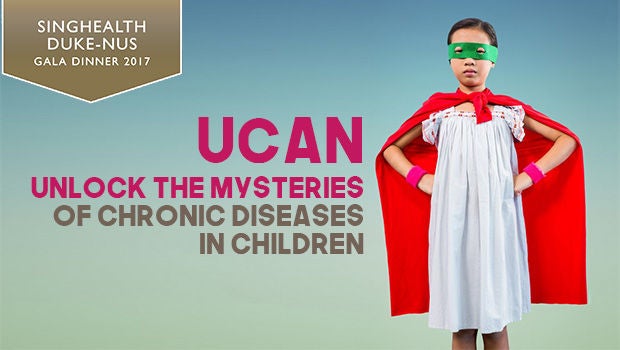
When Josiah* (not his real name), 10, started complaining of a slight pain in his ankle and heel, his parents thought it was just part of growing up. After some time, he started walking with a slight limp and soon, his parents noticed that he also started to walk slower and felt tired easily. His teachers also noticed that he was giving excuses to skip physical education classes because he felt tired. Josiah's parents brought him to different doctors, but his aches persisted. A few months later, he developed a prolonged high fever and rashes started to appear around his joints.
Josiah was diagnosed with Juvenile Idiopathic Arthritis (JIA), a group of arthritic conditions that affect some 400 children in Singapore. Each year, about 40 to 50 new cases have been diagnosed here since 2013. In Asia, it is estimated that about 2 million children aged between five and 14 suffer from JIA. Despite the fact that a significant number of young patients are affected by JIA, it remains that little is known about this condition, and how it will progress.
JIA is one of two childhood chronic, autoimmune diseases that have been identified as the key research focus areas in Paediatric Rheumatology. The other condition is Rheumatic fever, which, along with Rheumatic heart disease (permanent damage to the heart caused by Rheumatic fever), affects approximately eight million children between the ages of five and 15, globally, with about 300,000 children succumbing to this condition each year.
In Asia, it is estimated that about 2 million children aged between five and 14 suffer from JIA. Despite this fact, it remains that little is known about this condition.
In Asia, Paediatric Rheumatology is a relatively new area of sub-specialisation. Over the last 20 years, awareness of childhood-onset rheumatological conditions has increased. Nonetheless, the need to educate medical practitioners and the public about these conditions remains important so that young patients who display symptoms of these conditions can be diagnosed and treated early to ensure the best outcomes.
At the same time, accelerating research into conditions such as JIA and Rheumatic fever is critical both in Singapore and across Asia. Apart from the limited body of knowledge that exists about paediatric autoimmune diseases, most of the clinical presentations on these conditions are from Caucasian patients, whose genetic make-up differs greatly from Asians.
It is, therefore, critical that we devote concerted effort into building a comprehensive database to study the disease characteristics and identify the biomarkers that enables us to unlock some of the mysteries that cause these conditions in children here and in other parts of Asia.
To make advancements in this area, the Understanding Childhood (Chronic) Ailments Network - Asia (UCAN-A), an initiative focusing on providing state of art care to children with chronic immune diseases living in poor and underserved areas in Asia Pacific was created.
To do this, a robust network of high-tech, clinical and translational research hubs across Asia will be created, with Singapore serving as the central hub. The UCAN-A innovative model will be one of the first in the world where the needs of the young patient population are addressed by involving them and their families as protagonists, participating in their own care and concurrently contributing to and influencing translational research.
UCAN-A aims to develop standardised research platforms to facilitate rapid translation of scientific findings to enhance diagnosis, enable effective treatments that can achieve the best outcomes and quality of life for children afflicted with paediatric autoimmune conditions.
UCAN-A aims to develop standardised research platforms to facilitate rapid translation of scientific findings to enhance diagnosis, enable effective treatments that can achieve the best outcomes and quality of life for children afflicted with paediatric autoimmune conditions.
This will be especially beneficial for Asian countries with underserved patient populations, as the local health care hubs that will be set up under UCAN-A will be supervised by trained clinicians, comprising doctors and registered nurses, to provide clinical care and standardised care protocols for these conditions. This will enable patients and their families to better understand their conditions, while at the same time, facilitate data and sample collection for research to be collected and collated.
This ambitious plan to accelerate research into paediatric rheumatological diseases and other childhood chronic ailments will require about US$5 million (about S$7 million) to kickstart. Since February 2017, more than 20 leaders specialising in Paediatrics from Indonesia, Australia, Japan, Malaysia, New Zealand, Philippines and Thailand have pledged to support the network and in overcoming this global gap.
This article is part of a series that highlights the research and education causes for support in conjunction with the SingHealth Duke-NUS Gala Dinner 2017 that takes place on 3 Sept 2017.













 Get it on Google Play
Get it on Google Play